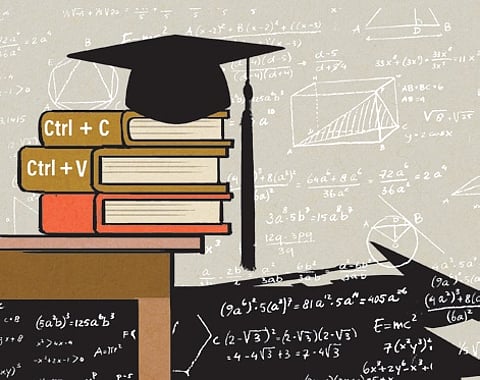The curious case of doctoral theses
A few days ago, a disturbing news item gained some currency when it carried the disclosure that a leading international journal of science had to retract many research papers published by the journal. Of course, it does happen that occasionally the peer review process does falter for a variety of reasons but a near wholesale retraction stretched over a not-too-lengthy period does create some anxiety. One offshoot was that my concerns about the quality of several journals that are being published in India were triggered and thus as a natural corollary I began to mull the rather inadequate quality of PhDs being produced.
Let me state at the outset that at no stage am I implying that all doctoral theses produced in Indian universities are of a dismal quality. In fact, I keep coming across some extremely good dissertations. My worry is that the number of rather poor doctoral theses has been growing at an alarming rate. Contrast this with the fact that in many nations that have fairly good academic standards across institutions, it is hard to come across a thesis that disappoints.
This happens largely through a voluntary and self-regulating mechanism. A sort of unsaid and unwritten peer pressure prevails to ensure that standards are maintained. Of course, more often than not, universities in countries such as the UK, Japan, Germany, France, Canada and the UK do adhere to good academic practices. At the same time a certain degree of regulation does exist.
Are these practices infallible? Certainly not. However, whenever slippage does occur, by and large corrective measures do take place. This is not the case in my nation. I am disappointed to state that over time our standards have been slipping. The only remedy is to appoint high quality faculty.
What is India doing about this matter of raising standards of research? From the decade of the 80s, the UGC has made strenuous efforts to stem the slide in standards. It has been consciously making efforts to raise the quality of research and teaching in our universities. The centrally conducted examinations by the UGC and agencies like the Council of Industrial and Scientific Research (CSIR) were designed to help maintain standards of research at the doctoral/teaching level.
However, in spite of the well-intentioned efforts, our standards keep sliding. I say this simply by the number of research papers stemming from doctoral dissertations of our universities are generally not published in research journals that have recognition across borders. Let me just mention one example. An eminent mathematical colleague was sometime back asked to evaluate a doctoral dissertation produced by the mathematics department of a once very well-regarded university. On a cursory glance, he realised that the dissertation comprised undergraduate level exercises.
Even more distressingly, the mathematics involved was abysmally wrong. He decided to not examine the thesis and returned it to the parent university. According to my colleague, he learnt later the thesis was then sent to some other examiner and the candidate has a full fledged PhD. I keep hearing such stories with increasing frequency. More worryingly, when my colleagues and I look at the quality of the many journals being published in my land where several of the research papers are drawn from doctoral dissertation then we do get worried.
Dinesh Singh
Former Vice-Chancellor, Delhi University; Adjunct Professor of Mathematics, University of Houston, US
Posts on X: @DineshSinghEDU

